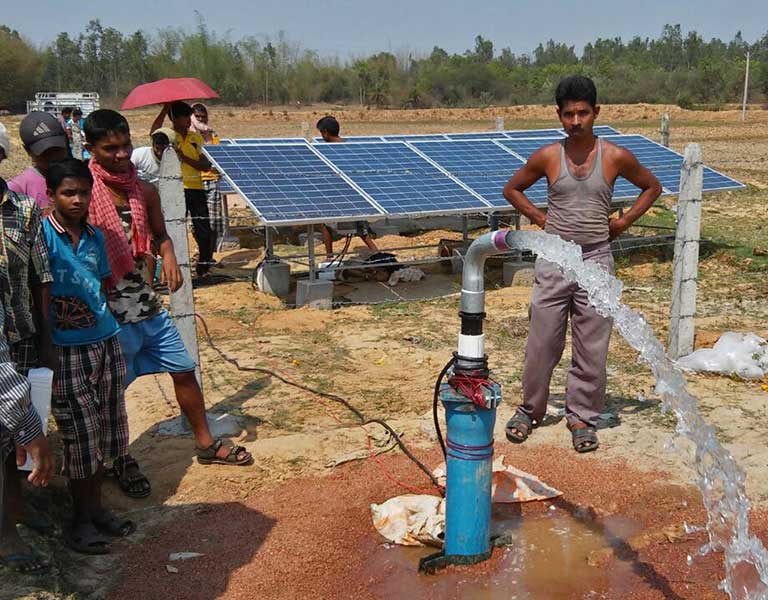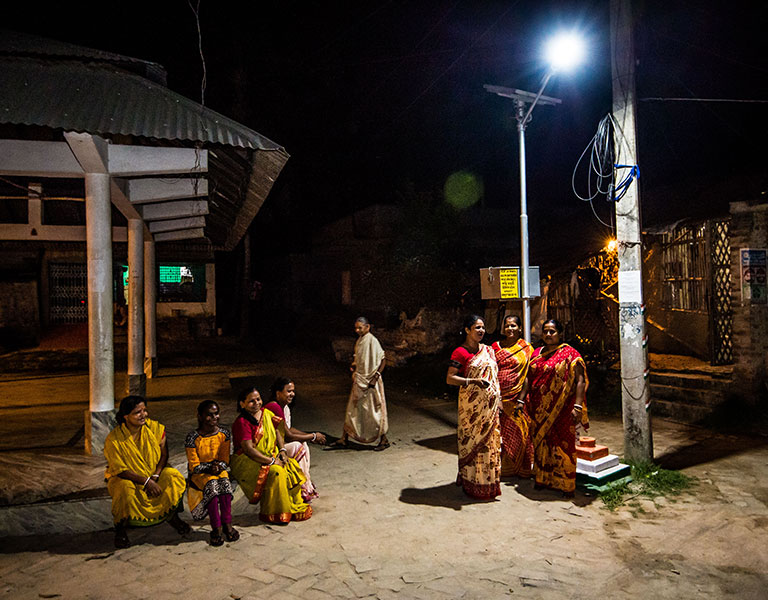Established in 2009, ONergy Solar is an end-to-end solar solutions company and a pioneer in rural energy access. ONergy has a wide network across 12 states in India, with the most extensive last mile footprint in the states of East and North East India. They have impacted over 500,000 rural households by providing them with affordable solar lighting (through more than 60,000 projects), water pumping and reliable energy. In this interview, Antara Dey Bhowmik of ONergy explains how his company reaches both rural and urban customers through a strong distribution network combined with end-to-end service support.
How did you determine your customer base or niche?
ONergy Solar is providing quality solutions for energy requirements. It was spun off to address the significant gap in the rural energy situation. The failure of the grid to meet the energy expectations of the rural populace was clearly evident and attributable to the lack of development in these areas. Our customer base of rural households, farmers and institutions was determined and reached through our network of channel partners, who consist of rural entrepreneurs, NGOs, MFIs, or product dealers. They are recruited locally for sales and distribution, and are provided with technical training to install, service, and sell our systems. The distribution and service network is managed by ONergy, leveraging the network, infrastructure and local knowledge of the partner.
When and how did you realise your product fulfilled a need or was desired by customers?
We focus on reducing energy related costs for customers through savings in diesel/kerosene electricity with attractive payback, hassle free operation and maintenance, and affordability through bank financing. In addition, with user feedback, our strong R&D team focuses on technological innovations like extensive data analysis and remote monitoring systems. These systems monitor the performance of the plants to safeguard the client from potential risk and make their experience better. ONergy Solar provides these value propositions that were proven to be success factors in developing and maintaining a strong customer base. Our key business innovation is developing a low cost distribution and technical service support network reaching remote corners.

Do you feel that serving multiple types of customers can be challenging (i.e. government, non-profits, rural households)? How do you address this challenge?
We cater to both rural and urban populations, addressing the need for clean and affordable energy solutions with a mix of private, government and institutional customers. Challenges in each sector are inevitable, especially for doing government projects and also with catering affordable solutions for rural based solutions or for farmers. Government projects take a huge amount of time for payment realisation, which affects the cash flow cycle, which in turn affects the working capital. However, the private parties, farmers and rural based solutions have quick cash flow but these clients also demand innovations for improved products at competitive rates.
What are the specific requirements when a company caters to businesses vs. customers (vs. government)?
For B2B (Business to Business):
Focus on project sales with clear benefits of energy savings or executing a CSR project.
For B2C (Business to Customer):
Compare existing cash flows of individuals and the savings a solar product would achieve by reducing the diesel or kerosene consumption. This needs to be supported with end user finance with our banking partners.
For B2G (Business to Government):
The greater working capital cycle needs to be considered, along with doing strong liaising with government authorities.
What was the biggest lesson learned when you structured your business model around the various customer bases?
The following considerations can be structured into the business model, keeping the various customer bases in mind:
- Having a clear product segmentation for different customers
- Ability to show a superior return on investment to the customer through higher savings and increased income opportunities
- Understanding consumer needs and differentiating from the competition
- Facilitating consumer financing.
What tools do you use to manage customer relations? Why?
Customer relationship management for us denotes a process and strategy to manage the customer relationship. This includes the following elements:
- Managing customer databases and outreach
- Understanding system performance through remote monitoring and communicating the same
- Prompt after sales service support through a toll free number and a decentralised service network
- Undertaking various marketing and outreach drives to connect to users.
How do you create demand and market your product for your specific customer base?
Our strength lies in developing high quality products and a strong after sales service network, while facilitating consumer financing for solar systems. We expanded our footprint in the remotest regions of the country with our last mile access program. Word of mouth publicity is also critical, for which we ensure the completion of each solar plant from concept to commissioning, including its operation and maintenance for the complete lifespan of the plant. Rural entrepreneurs are recruited locally for sales and distribution, and are provided with technical training to install, service, and sell our systems.

Update: How has the COVID-19 pandemic affected your business?
The Covid-19 pandemic has affected all sectors and definitely solar business has been affected hugely as it is closely integrated commercially with the Chinese economy. Most of the projects in India rely on Chinese suppliers for at least some of their requirements. Though we can see a recovery, however the modules, cells, and wafers manufacturer are still some time away from resuming 100% production.
The ports and the shipping industries too will take some time to resume full-fledged operations. The ensuing impact in terms of price increases and supply delays will not just impact project cost economics but also derail solar capacity addition targets in India. All the stakeholders will have to rethink their strategies, so we are.